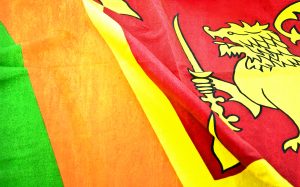Since Sri Lanka’s President Gotabaya Rajapaksa took power in 2019 things have taken a turn for the worst for minority Muslims in the country. Sri Lanka’s Muslims make up just 10 percent of the country’s overall population; the majority are Sinhalese Buddhist, while most Tamils are from Hindu and Christian faiths. Yet, despite Sri Lanka being a diverse country, the current government wants to ensure that dissenting voices are silenced.
Those who criticize the government in Sri Lanka have had a long history of being cracked down on, but recently the government has taken a more active role in punishing the Muslim community. One such example is the arrest of a former government advisor, Azath Salley, who prominently advocated for the human rights of minorities during his time as a politician.
Salley was falsely accused of having “links” to the Easter attacks and the vandalization of Buddhist statues in a town called Mawanella. However, many Sri Lankan Muslims in the community know that the former governor tried to warn the government about the National Thawheed Jamath (NTJ) terrorists and strongly condemned violent acts of terror.
In fact, Salley provided the government with information on the extremist suspects a year before the attack took place, but the government chose not to act on it. Salley had told The Hindu that he had “informed top government authorities about the activities of extremist elements several times.” He also claimed that the Rajapaksa administration’s Defense Ministry had been funding the NTJ for years prior to the tragic Easter attacks on April 21, 2019.
Despite that history, Salley himself was arrested on March 17, 2021, for alleged links to the Easter bombing.
Salley has not been the only person to face punishment for speaking out. One female Muslim human rights activist, who doesn’t want to be named, said that she was reprimanded by police officers for speaking out against the burqa ban. She also said those who were openly criticizing Islamophobic policies that the government had implemented, such as forced cremations, were being threatened. She says that police officers told her that if she continued criticizing government policies she would be arrested and her family would be in danger.
Many Muslim women in Sri Lanka tell me they would like to file a discrimination case against the government but are scared of being reprimanded. Some Muslim activists have received death threats when speaking out against Islamophobia. Many of these women have been told that if they were to speak out and file a case in the international court of law they would have to face “dire consequences.” Some of these Muslim women have even contemplated leaving the country, but fear that if they were to leave their family behind their relatives would be harmed for whatever they chose to say about the government abroad.
There are a growing number of Muslims who have been threatened or arrested under false allegations. Even Muslim politicians who firmly stood against the April Easter bombings are now being arrested for being allegedly involved in the attacks.
As a Sri Lankan Muslim myself I fear for the Muslims of my country. I would normally visit Sri Lanka almost every year, prior to COVID-19, but I am now concerned about being reprimanded for speaking out on the injustices faced by my fellow Muslims in the country. I have seen the crackdown on many Muslims over the years by pro-Rajapaksa supporters.
Prominent Muslim dissenting voices are being threatened, harassed, and made to fear for their families’ lives. Yet, despite the many human rights abuses that go on in the country, the Sri Lankan government continues to evade accountability and reigns with impunity. It is now time for the international community speak out against the crackdown on Muslims and call the government out for what it is: a textbook dictatorship.

































